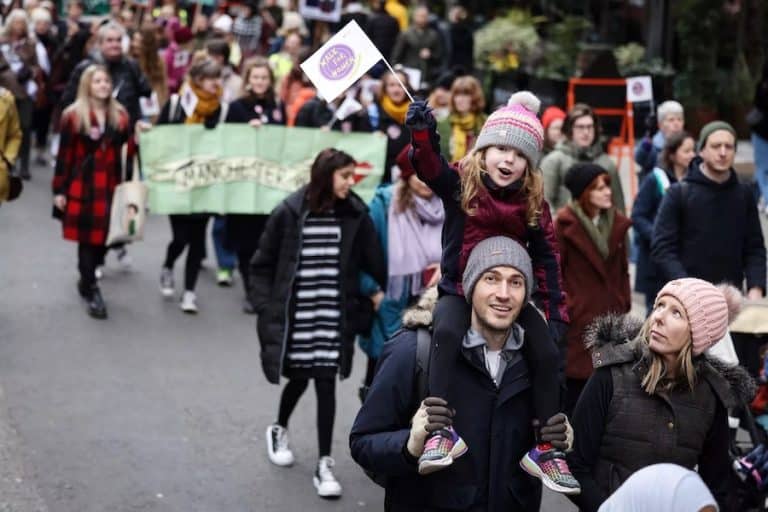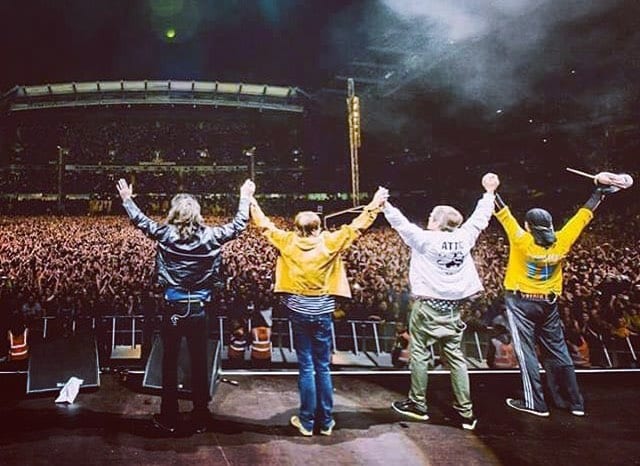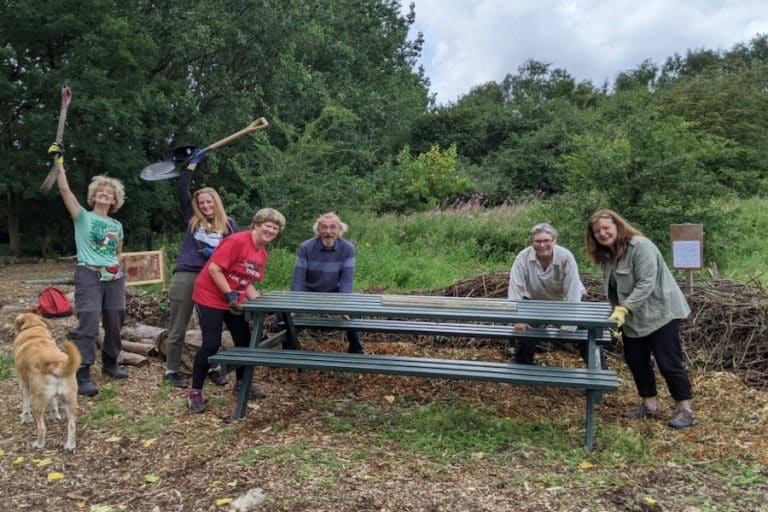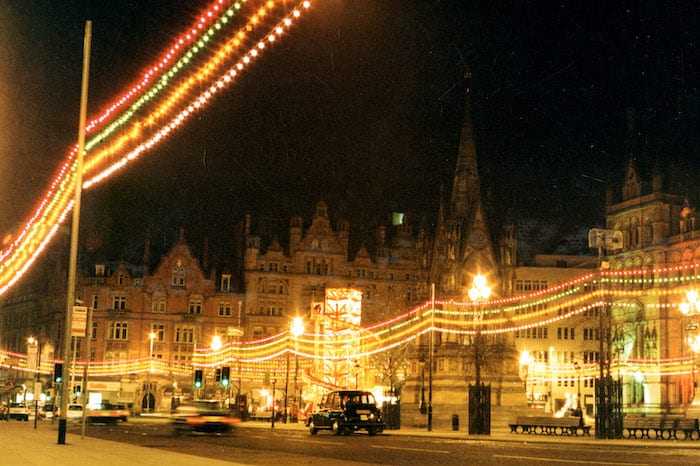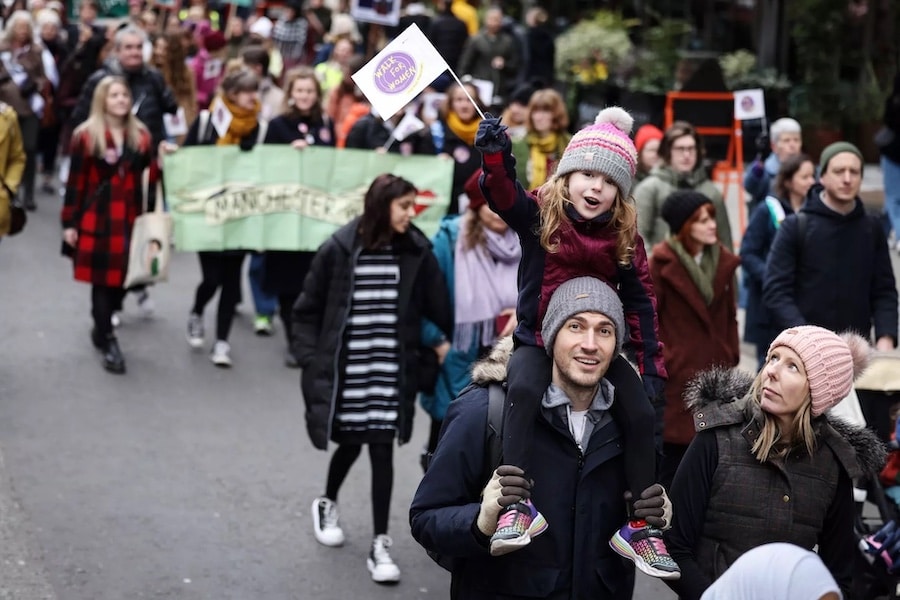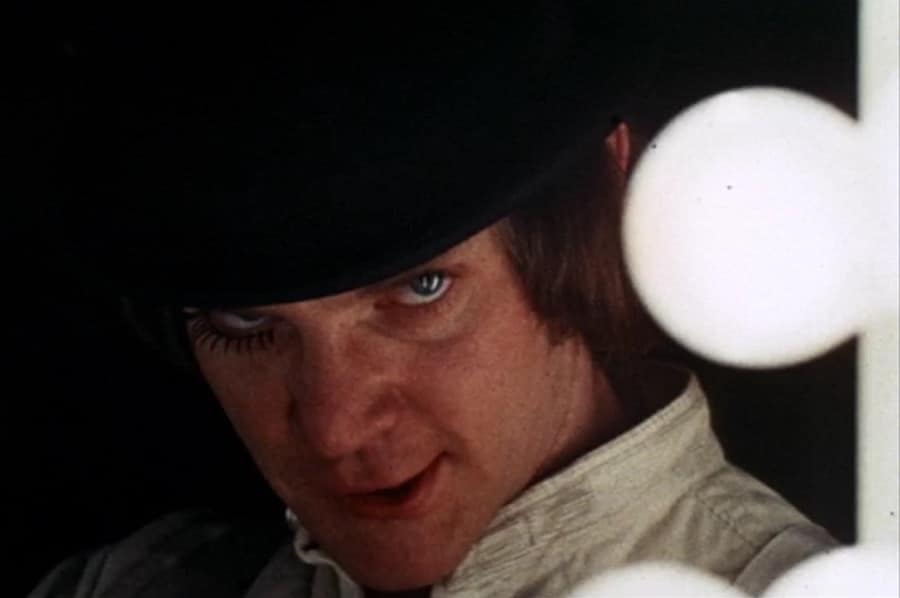Why Mike Leigh’s Peterloo could have been so much better
- Written by Ed Glinert
- Last updated 6 years ago
- Cinema, Culture
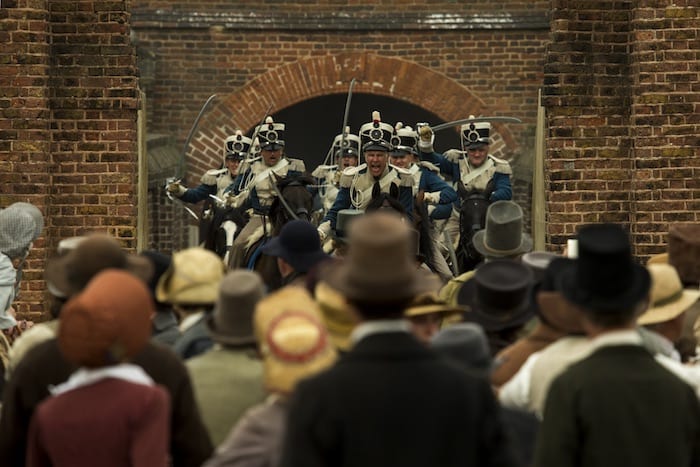
I’ve been talking, walking, reading, thinking, sleeping, writing about Peterloo, giving guided tours about Peterloo, delivering lectures about Peterloo for more than 30 years. When I sleep, I dream about being present at one of the Manchester radicals’ meetings at the Elephant pub on Tib Street (sadly, no more) in 1816, campaigning against the hated Corn Laws.
In 1984, to mark that infamous year, I proposed a motion via the city Labour Party to change the name of the Free Trade Hall to the Peterloo Hall. It never got through the council, alas, but fifteen years later they did rename it something like the Radisson (Free Trade Hall) Hotel. Radisson had more money than me.
For the last few years I have been involved in the Peterloo Memorial Campaign, a brilliantly-run activists’ group intent on encouraging Manchester city council to erect a fitting memorial to the people who died campaigning for democracy on 16 August 1819 at St Peter’s Field.
The driving force behind my Peterloo obsession is not, God forbid, a desire to get Jeremy into No. 10 but because, as a serious researcher of British history and a devout progressive, I know that Peterloo is a defining moment in the history of England that ranks alongside Magna Carta (1215), Habeas Corpus (1305) and the Bill of Rights of 1689.
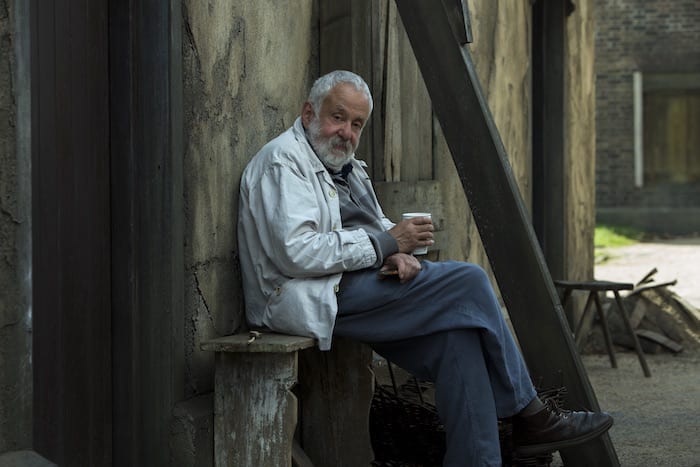
By the way, next in that league table is the Great Reform Bill of 1832 which at last gave the vote to Manchester. OK, only to some of the people and no women, but it was a start and something the demonstrators at Peterloo were hoping for.
So you can imagine how excited I was a few years ago to discover that Salford-born Mike Leigh, of all film directors, was going to direct a film on this most exciting and energetic period in English history. It would be called simply Peterloo. Perfect.
Having worked with Mike on editing the complete libretti of Gilbert & Sullivan for Penguin Classics a decade ago, I dropped him a line with my suggestions for the plot and outline. What an egomaniac. Yes. I am brimming with ideas. Sadly he didn’t use any of them.
So now, having seen the film with a free ticket at the official HOME premiere via that noble institution, the Peterloo Memorial Campaign, I can tell the rest of the global audience what’s wrong with the film.
Before I do, a caveat. One of the problems with tackling this subject is that the very story of Peterloo is so fraught with emotion and moral righteousness it takes a brave writer to offer any criticism. Manchester people, especially those on the Left, are afraid to snipe for fear of being branded with the worst insult of all: “Tory!” I am that brave writer.
First let me outline the basic plot. At the beginning of the film a rather sad-looking young lad survives the Battle of Waterloo, shell-shocked and barely alive. Somehow he makes his way home from Belgium to his basic homestead in Angel Meadow, Manchester, and to his family, the mother played by Maxine Peake.
Around them a working class community is barely existing, chained to the mill, hungered by the high price of bread or the ingredients to make it (kept artificially high by the Tories, really). Manchester is a town caked in industrial filth, squalor and poverty. The abstract notion of social injustice hangs in the air.
This was a Manchester where there was no local democracy or say in Parliament. The growing town was run by rich absentee landowners and a self-perpetuating caste of magistrates. The army was a visible presence, watching for any signs of insurrection with the help of police spies (neatly recreated in the film).
However, within the community are activists fired up by these privations. A succession of ever bigger public meetings takes place to air those grievances. What can the solution be?
In France it was revolution (it’s still too early to say whether it worked). In Manchester two hundred years ago there were those who wanted to reform the system to make it work better for them and those who wanted to smash the system.
Eventually a mass meeting was called for August 1819 and two local radical leaders, Sam Bamford and Joseph Healey, went to London to meet the would-be star speaker at their event, yeoman farmer Henry “Orator” Hunt.
In a film in which all the working class characters are saints or angels, and all the middle class buffoons, Hunt is the exception. He is vain, arrogant, suspicious of the workers, uncomfortable in their presence. He is a bit of a handful. He is played as a right git by Rory Kinnear.
The meeting eventually takes place on 16 August 1819 on what is now Peter Street. The local magistrates, volunteer militia and even the better-trained soldiers used it as a long-awaited excuse to attack, stab, maim, sabre, murder anyone they can get hold of in breaking up the meeting.
As the great radical journalist Paul Foot explained in Red Shelley, his masterful book about the radical poet, the government was at war with its own people in their paranoia to obstruct an English revolution.
As expected in the film, the young lad who survived Waterloo falls at Peterloo in the film. The last scene sees him buried in a windy hill-top rural church. That’s it.
There is so much missing I’m expecting Peterloo 2 to come out in a few months. So what could have been included that would have improved the film?
I was expecting/hoping for/suggested an introduction comprising a dream sequence in which the reactionary government ministers Castlereagh, Edlon, Sidmouth, vilified in Shelley’s Peterloo poem The Masque of Anarchy, parade behind their masks as featured in the poem read by, say, Maxine Peake, as she did at the Manchester International Festival a few years ago.
That would have been truly magical and tingling, and could have been completed with a similar sequence at the end.
Alternatively, I thought of a modern-day family discussing the events, maybe with the aid of a period curio, a sword or sabre from the fateful day, inherited down the years, and then a flashback.
Those are filmic devices which take the spectacle beyond the format of a documentary, which is what this film comes over as.
Well, that’s the problem with the beginning. The ending is worse. It really does look like Mike Leigh ran out of money or interest.
Indeed, Mike admitted that initially he knew little about Peterloo. It shows. He should have contacted me, Robert Poole, Terry Wyke and Michael Powell of Chetham’s to devise a fuller picture.
After all, the story of what came after Peterloo is as interesting as the events of the day. There should have been more post-massacre scenes and fewer music interludes in the Yorkshire hills.
Henry Hunt, the main speaker, is central to Peterloo, yet the viewer is left ignorant of what happened to him after. A scene of Hunt in court showing the orator being sentenced to two years in Ilchester jail would have meant closure for the film-goer.
Nothing about how a group of anarchists vowed vengeance for Peterloo a few months later by planning to assassinate the entire British cabinet. What a film that would make.
Thirteen years after Peterloo, some of the public got the vote and Manchester at last had Parliamentary representation. But no mention of that here.
Sorry, Mike, not good enough.
- This article was last updated 6 years ago.
- It was first published on 25 October 2018 and is subject to be updated from time to time. Please refresh or return to see the latest version.
Did we miss something? Let us know: [email protected]
Want to be the first to receive all the latest news stories, what’s on and events from the heart of Manchester? Sign up here.
Manchester is a successful city, but many people suffer. I Love Manchester helps raise awareness and funds to help improve the lives and prospects of people across Greater Manchester – and we can’t do it without your help. So please support us with what you can so we can continue to spread the love. Thank you in advance!
An email you’ll love. Subscribe to our newsletter to get the latest news stories delivered direct to your inbox.
Got a story worth sharing?
What’s the story? We are all ears when it comes to positive news and inspiring stories. You can send story ideas to [email protected]
While we can’t guarantee to publish everything, we will always consider any enquiry or idea that promotes:
- Independent new openings
- Human interest
- Not-for-profit organisations
- Community Interest Companies (CiCs) and projects
- Charities and charitable initiatives
- Affordability and offers saving people over 20%
For anything else, don’t hesitate to get in touch with us about advertorials (from £350+VAT) and advertising opportunities: [email protected]
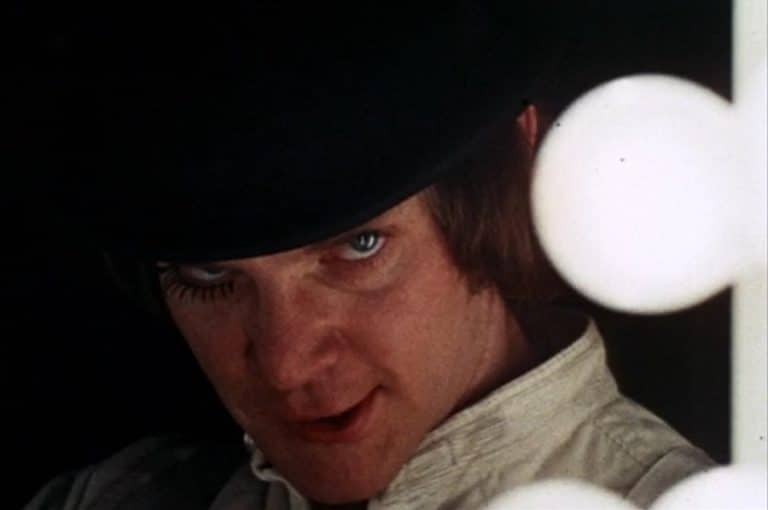
What is the legacy of Manchester’s most controversial (and maybe best) novel?

Big Issue, bigger heart: Manchester comes together for Colin
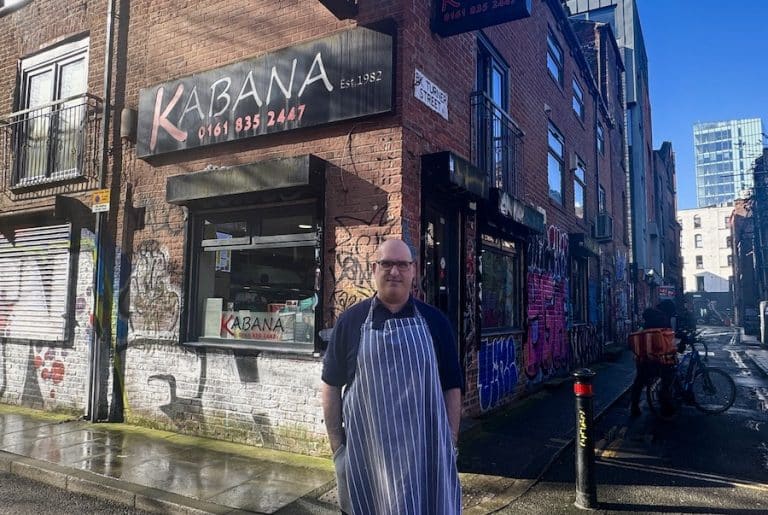
Why generations of Mancunians have loved Kabana for over 40 years
